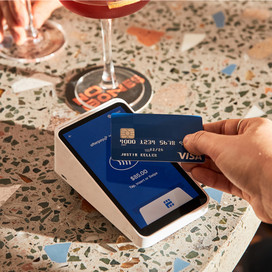Table of contents
Lenders use a business credit score to evaluate whether a business is creditworthy. Each time you apply for business credit, the lender takes into consideration your level of credit risk. However, According to research from MYOB and small business lender OnDeck, 93% of businesses have never accessed their score. Lenders use your business credit score to approve or deny your application.
While many assume they mean the same thing, business credit is the ability to qualify for financing, while a business credit score refers to the actual numerical rating. A business credit score works similarly to a personal credit score. However, each credit score is different and doesn’t impact the other.
What is a Business Credit Score?
A business credit score is a numerical indicator of the financial health of your business, used by banks and lenders in assessing the risk of lending to your business.
Your business credit score will help determine the most appropriate loan provider for your business and avoid receiving rejections, which negatively impact your credit score.
What is a good Business Credit Score?
According to Equifax, a business credit score varies on a scale between 0 – 1200, with 0 is the lowest and 1200 the highest business credit score. As a general rule of thumb, a good business credit score is somewhere between 622 – 725. A very good business credit score is between 726 – 832. Whilst a score of 833 and over is regarded as excellent.
Business Credit Score 101: Why It Matters
Often, opportunities exist that cost more than the cash you have available, meaning you might rely on credit to take advantage of them. Without the ability to get approval from a lender, your business operations may stagnate and your income potential may be limited. In addition to influencing whether or not you get a loan, this score affects repayment terms and interest rates. A business with a lower credit score may be granted business credit, but it may come with a higher interest rate and a lower spending limit.
The first step to growing your business through credit is understanding how business credit works and is calculated so you can use it to your full advantage. To make sure that your score is as high as possible, start by learning your current score and then proactively manage it. You should protect your score just as you would any other key parts of your business.
How your business credit score is calculated
Your business credit score is calculated by evaluating a wide range of data about your business and finances. The following factors are used to calculate business credit scores:
- Credit utilisation ratio
- Payment history
- Age of credit history
- Existing debt
- Public records
- Company size
- Industry risk
- Number of recent credit inquiries
Many business owners are a bit surprised when they first see their business credit score because the range is calculated from 0 to 100 points, instead of the 300 to 850 point scale used for personal credit. The exact interpretation of the score depends on the credit bureau. Dunn & Bradstreet, for example, marks scores over 80 as good credit risks and scores under 49 as bad credit risks. Experian marks scores over 76 as low risk and under 25 as high or medium high risks.
How to increase your business credit score
Once you gain business credit, you should protect your score and actively work to increase your rating to make it easier to get credit for future growth. Many of the strategies for improving your business credit score are similar to those used to increase personal credit scores.
Here are tips for increasing your business credit score:
- Make your payments on time. In addition to resulting in costly late fees, late payments can lower your score. Consider setting up automatic payments to ensure you don’t miss paying bills.
- Use credit opportunities to build your score. If you do not use credit, then you will have a short credit history and possibly a low score. Avoiding credit can be counterproductive. When your company is starting out, proactively obtain credit and pay it off so that you can access additional credit for an emergency or unexpected growth opportunity.
- Review your business credit report regularly with Dun & Bradstreet, Equifax, and Experian, which are the three major companies that provide business credit scores. Similar to personal credit reports, occasionally, errors can be made that lower your score so be sure to contact them if you see an anomaly.
- Monitor your credit utilisation ratio, which is the amount of credit used versus the amount available. For example, if you have a business credit card with a $10,000 limit and you carry a $1,000 balance, then your credit utilisation ratio is 10%.
- Make sure paid loans are removed from your report. Sometimes credit companies do not remove a debt from your account after it is paid, which can inaccurately increase your credit utilisation ratio. Reach out to the credit bureau reporting the inaccurate debt and request that the paid loan is removed.
- File disputes for errors in a timely manner. By letting an inaccurate account or missed payment stay on your account, you further damage your score and miss opportunities.
Many business owners assume that debt is something to avoid when starting and running a business. However, wisely investing money in your business can help you establish a credit history that will improve your business credit score. By proactively managing and growing your business credit score you can access credit more easily and quickly, which can help you grow your company.
Square Loans can Help Your Business
Getting a small-business loan can be a complicated process — but it doesn’t have to be. With Square Loans, there’s no lengthy application, qualified sellers can get funds as soon as the next business day upon approval, repayment happens as a fixed percentage of your daily card sales, and the cost of the loan is a fixed dollar amount that never changes.
We want to make getting access to the funds you need to grow your business as simple and easy as possible.
![]()











